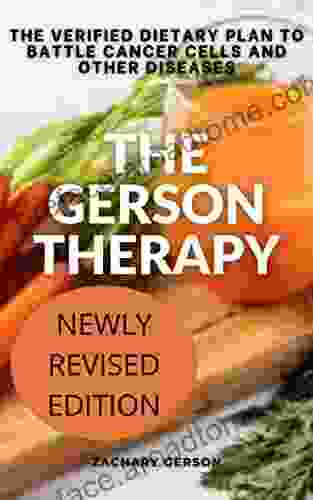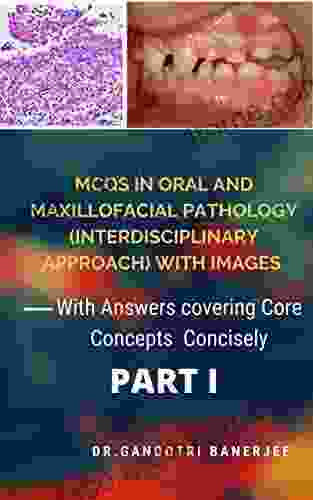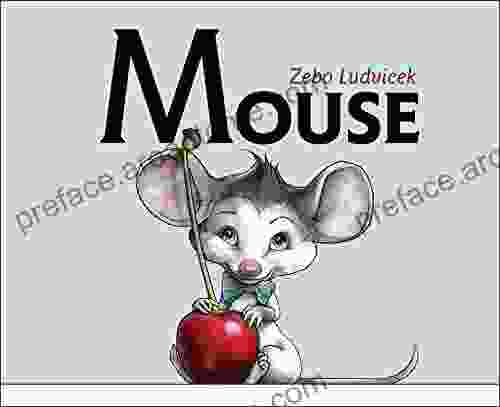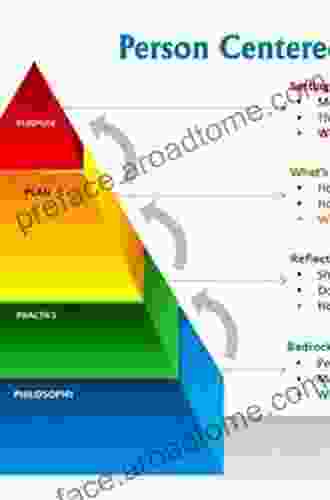Shared Decision Making for Whole Health: Empowering Patients in Healthcare

In today's complex healthcare landscape, patients face a myriad of decisions that can significantly impact their well-being. From choosing the right healthcare provider to selecting the most appropriate treatment options, the power to make informed choices is crucial. Shared decision making (SDM) empowers patients to take an active role in their healthcare journey, fostering better outcomes and a more fulfilling patient experience.
4.5 out of 5
| Language | : | English |
| File size | : | 6709 KB |
| Text-to-Speech | : | Enabled |
| Screen Reader | : | Supported |
| Enhanced typesetting | : | Enabled |
| Word Wise | : | Enabled |
| Print length | : | 290 pages |
The Principles of Shared Decision Making
SDM is a collaborative process that involves healthcare professionals and patients working together to make informed choices about care. It is based on the principles of:
- Shared Responsibility: Both healthcare professionals and patients share the responsibility for making decisions.
- Informed Consent: Patients have the right to receive clear and complete information about their condition and treatment options before making decisions.
- Values and Preferences: Patients' values, beliefs, and preferences are respected and incorporated into decision-making.
- Evidence-Based Care: Decisions are based on the best available scientific evidence and research.
The Benefits of Shared Decision Making
Extensive research has demonstrated the numerous benefits of SDM for patients, healthcare professionals, and the healthcare system as a whole. These benefits include:
- Improved Patient Outcomes: SDM has been associated with better health outcomes, including reduced mortality, improved quality of life, and increased satisfaction with care.
- Increased Patient Engagement: SDM empowers patients to take ownership of their health and actively participate in their care.
- Reduced Healthcare Costs: By involving patients in decision-making, SDM can lead to more cost-effective care while avoiding unnecessary treatments.
- Enhanced Patient-Provider Relationships: SDM fosters open communication and trust between patients and healthcare professionals, leading to more productive and satisfying relationships.
Implementing Shared Decision Making in Practice
Implementing SDM in healthcare settings requires a collaborative effort involving all stakeholders. Here are some key steps:
- Establish a Culture of SDM: Healthcare organizations should establish policies and practices that support and promote SDM.
- Train Healthcare Professionals: Healthcare professionals need to be trained on the principles and skills of SDM.
- Develop Decision Support Tools: Tools such as decision aids and patient portals can facilitate informed decision-making.
- Engage Patients in the Process: Patients should be actively involved in all aspects of SDM, from setting goals to evaluating outcomes.
- Monitor and Evaluate: Regular monitoring and evaluation are essential to ensure the effectiveness of SDM implementation.
Case Studies and Examples
Numerous case studies and examples demonstrate the transformative power of SDM in practice. For instance, a study involving patients with breast cancer showed that SDM led to increased satisfaction with care, reduced anxiety, and improved emotional well-being.
In another example, a study of patients with diabetes found that SDM resulted in better blood sugar control, reduced healthcare utilization, and increased self-management skills.
These examples highlight the practical benefits of SDM and its potential to improve the lives of patients.
Shared decision making is an essential component of whole health. By empowering patients to take an active role in their healthcare journey, SDM fosters better outcomes, increased engagement, reduced costs, enhanced patient-provider relationships, and a more fulfilling patient experience. Healthcare organizations, healthcare professionals, and patients themselves all have a role to play in implementing SDM and reaping its numerous benefits.
The book "Shared Decision Making for Whole Health" provides a comprehensive guide to the principles, benefits, and implementation of SDM. This invaluable resource is essential for anyone seeking to transform healthcare and empower patients to achieve optimal health and well-being.
Call to Action
Free Download your copy of "Shared Decision Making for Whole Health" today and embark on the journey towards a more patient-centered, whole-health approach to healthcare. Together, we can unlock the full potential of SDM and create a healthcare system that truly empowers patients.
Free Download Now
4.5 out of 5
| Language | : | English |
| File size | : | 6709 KB |
| Text-to-Speech | : | Enabled |
| Screen Reader | : | Supported |
| Enhanced typesetting | : | Enabled |
| Word Wise | : | Enabled |
| Print length | : | 290 pages |
Do you want to contribute by writing guest posts on this blog?
Please contact us and send us a resume of previous articles that you have written.
 Book
Book Novel
Novel Page
Page Chapter
Chapter Text
Text Story
Story Genre
Genre Reader
Reader Library
Library Paperback
Paperback E-book
E-book Magazine
Magazine Newspaper
Newspaper Paragraph
Paragraph Sentence
Sentence Bookmark
Bookmark Shelf
Shelf Glossary
Glossary Bibliography
Bibliography Foreword
Foreword Preface
Preface Synopsis
Synopsis Annotation
Annotation Footnote
Footnote Manuscript
Manuscript Scroll
Scroll Codex
Codex Tome
Tome Bestseller
Bestseller Classics
Classics Library card
Library card Narrative
Narrative Biography
Biography Autobiography
Autobiography Memoir
Memoir Reference
Reference Encyclopedia
Encyclopedia Ewout W Steyerberg
Ewout W Steyerberg Don Voorhees
Don Voorhees Mark Chirnside
Mark Chirnside Peggy Caserta
Peggy Caserta Diane Craig Chechik
Diane Craig Chechik Jim Brennan
Jim Brennan Mark Galer
Mark Galer Willie Morris
Willie Morris Dom Testa
Dom Testa Michael Sergeant
Michael Sergeant Robert Irwin
Robert Irwin Vicky Pattison
Vicky Pattison L J Ettinger
L J Ettinger Donald Capps
Donald Capps Doug Gelbert
Doug Gelbert Sally M Keehn
Sally M Keehn Dr Bill Williams
Dr Bill Williams Jeremy Quad
Jeremy Quad Geoff Cumming
Geoff Cumming Doru Michael Stefanescu
Doru Michael Stefanescu
Light bulbAdvertise smarter! Our strategic ad space ensures maximum exposure. Reserve your spot today!

 Rick NelsonUnleash the Healing Power: The Verified Dietary Plan to Conquer Cancer Cells...
Rick NelsonUnleash the Healing Power: The Verified Dietary Plan to Conquer Cancer Cells...
 Robert HeinleinBlackwell Five Minute Veterinary Consult Clinical Companion: Empowering...
Robert HeinleinBlackwell Five Minute Veterinary Consult Clinical Companion: Empowering... Jeff FosterFollow ·7.4k
Jeff FosterFollow ·7.4k Finn CoxFollow ·9.4k
Finn CoxFollow ·9.4k Robert ReedFollow ·7.5k
Robert ReedFollow ·7.5k Junichiro TanizakiFollow ·2.3k
Junichiro TanizakiFollow ·2.3k Allan JamesFollow ·10.4k
Allan JamesFollow ·10.4k Jackson BlairFollow ·9.7k
Jackson BlairFollow ·9.7k William ShakespeareFollow ·10.5k
William ShakespeareFollow ·10.5k Wayne CarterFollow ·2.8k
Wayne CarterFollow ·2.8k

 Brandon Cox
Brandon CoxUnveiling the Secrets of Core Concepts: The Ultimate...
Are you ready to unlock the doors...

 Colt Simmons
Colt SimmonsUnlock Your True Potential: Uncover the Real Reasons For...
Embark on a...

 Ivan Turner
Ivan TurnerLove You Mom But You And Dad Are Getting a Divorce
A Heartfelt and...

 Ervin Bell
Ervin BellIntroducing Mouse Paul Moorcraft: A Captivating Tale of...
Embark on an Unforgettable Journey...

 Mike Hayes
Mike HayesBattling Obesity In Teens And Shaping The Future
The Growing...

 Yasushi Inoue
Yasushi InoueEmbark on a Culinary and Cultural Voyage: Delve into the...
A Tapestry of...
4.5 out of 5
| Language | : | English |
| File size | : | 6709 KB |
| Text-to-Speech | : | Enabled |
| Screen Reader | : | Supported |
| Enhanced typesetting | : | Enabled |
| Word Wise | : | Enabled |
| Print length | : | 290 pages |








